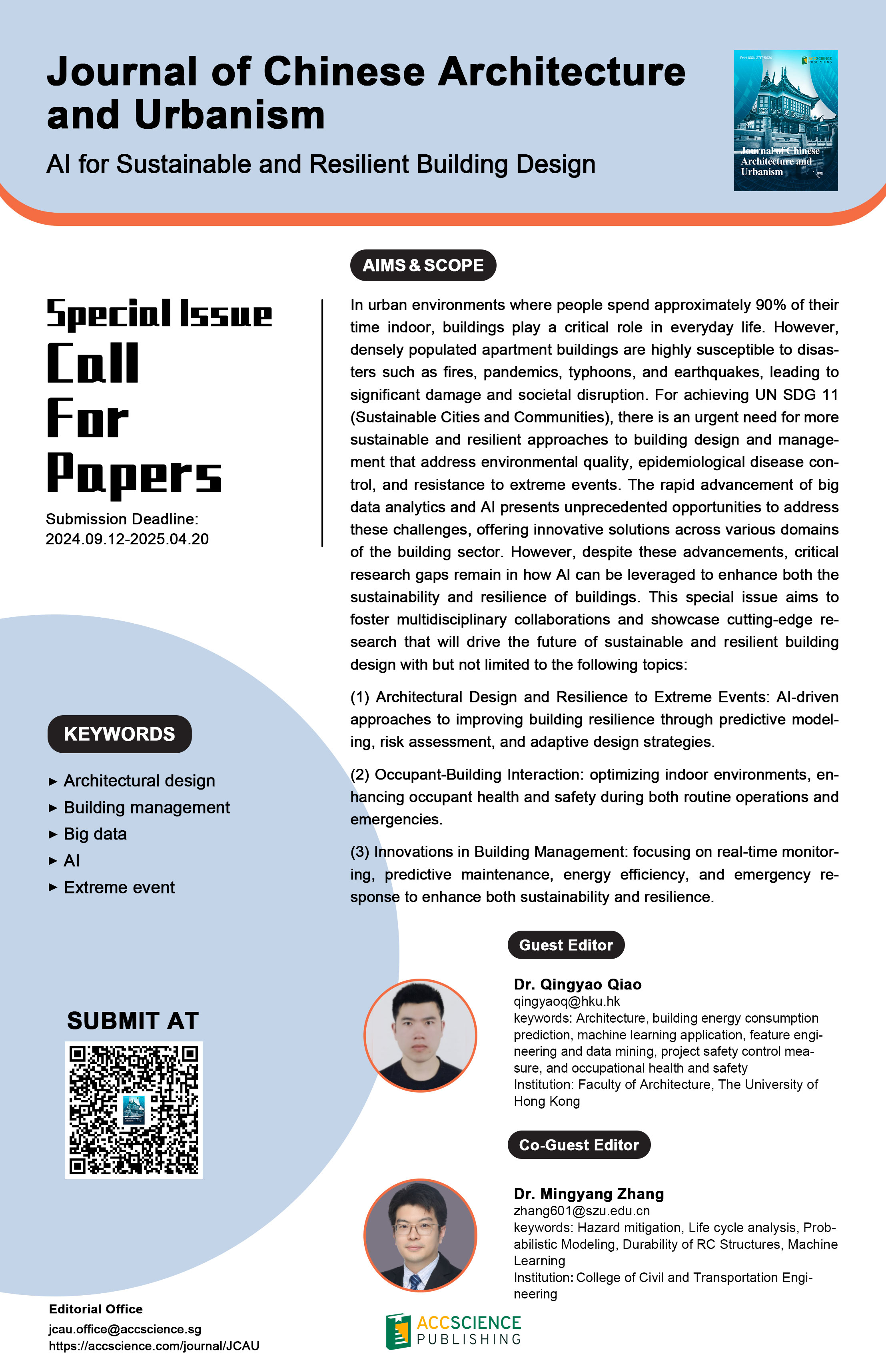
In urban environments where people spend approximately 90% of their time indoor, buildings play a critical role in everyday life. However, densely populated apartment buildings are highly susceptible to disasters such as fires, pandemics, typhoons, and earthquakes, leading to significant damage and societal disruption. For achieving UN SDG 11 (Sustainable Cities and Communities), there is an urgent need for more sustainable and resilient approaches to building design and management that address environmental quality, epidemiological disease control, and resistance to extreme events. The rapid advancement of big data analytics and AI presents unprecedented opportunities to address these challenges, offering innovative solutions across various domains of the building sector. However, despite these advancements, critical research gaps remain in how AI can be leveraged to enhance both the sustainability and resilience of buildings. This special issue aims to foster multidisciplinary collaborations and showcase cutting-edge research that will drive the future of sustainable and resilient building design with but not limited to the following topics:
(1) Architectural Design and Resilience to Extreme Events: AI-driven approaches to improving building resilience through predictive modeling, risk assessment, and adaptive design strategies.
(2) Occupant-Building Interaction: optimizing indoor environments, enhancing occupant health and safety during both routine operations and emergencies.
(3) Innovations in Building Management: focusing on real-time monitoring, predictive maintenance, energy efficiency, and emergency response to enhance both sustainability and resilience.
Integrating parametric modeling (iLEED) with the LEED framework for sustainable site planning at the conceptual design stage



